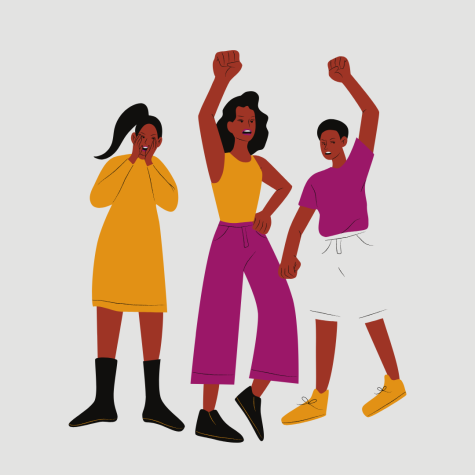Video Games: Are They Really As Bad As They Seem?
Many teens around the world play video games with controllers just like this one.
May 21, 2018
Picture this: Tim comes home from school, a place where he has no friends. He logs into his Xbox account and joins a voice chat with eight of his online friends. He rejoices when he’s invited into their game, and plays until he has to get off and do his homework.
There’s been an ongoing debate as to whether video games are harmful or beneficial, and it seems hard to find the answer. However, it’s out there.
It’s true that video games have some negative effects: they can increase heart rates, and they can make players upset or angry. Despite this, video games are not completely bad – some are even beneficial. Video games can increase social activity for some teens, and promote better teamwork and communication. Video games can also teach important information. Some of these subjects include culture, science, history, and politics.
The Social Effect
Although the popular belief is that video games make teens less social, they actually have the opposite effect. Many teens that are not social in school are very social online when playing video games. Ethan Roberts, a student at Somerset Canyons, believes this. He said, “Many teens are more confident online, so they make more friends there and have better relationships with them.”
Video games can also help teens to communicate better. In many online games, good communication can mean the difference between winning and losing. Communication is a skill that everyone needs, both in real life and in the virtual world, and gaming can help you to practice it. Ryan Sokol, a student at Somerset Canyons, explained that, “Teens must be able to listen to multiple people at once, and provide information about the task as well.” This is not an easy skill to master, and takes work to get better at.
Educational Benefits
Video games can also teach teens about many different topics. Games such as the Assassins Creed series can teach players about Ancient Egyptian and European culture. The games show how life was like back then, and mentions important events in history.
Not only that, but the game Just Cause 3 can teach teens about politics because it’s centered around a dictatorial government. The game explains how the government works.
These are not the only educational games – there’s many more than just these two.
Negative Impacts
Even though video games do have their benefits, they are not perfect. Video games can cause teens to get angry or upset. Aggressive behavior can hurt both teens and the people around them. Grace Rinier, a student at Somerset Canyons, stated, “Video games can cause people to get mad when they lose, and it’s not good for them.”
Video games can also cause an increase in heart rate, which can be harmful to your body. High heart rates can make people feel dizzy, tired, and lightheaded. If the heart rate stays too high for too long, this can lead to other problems.
Grace Rinier said, “Video games can be beneficial if a parent monitors the type of game, and the amount of time the games are played for.”
What do you think? Feel free to leave a comment down below!










